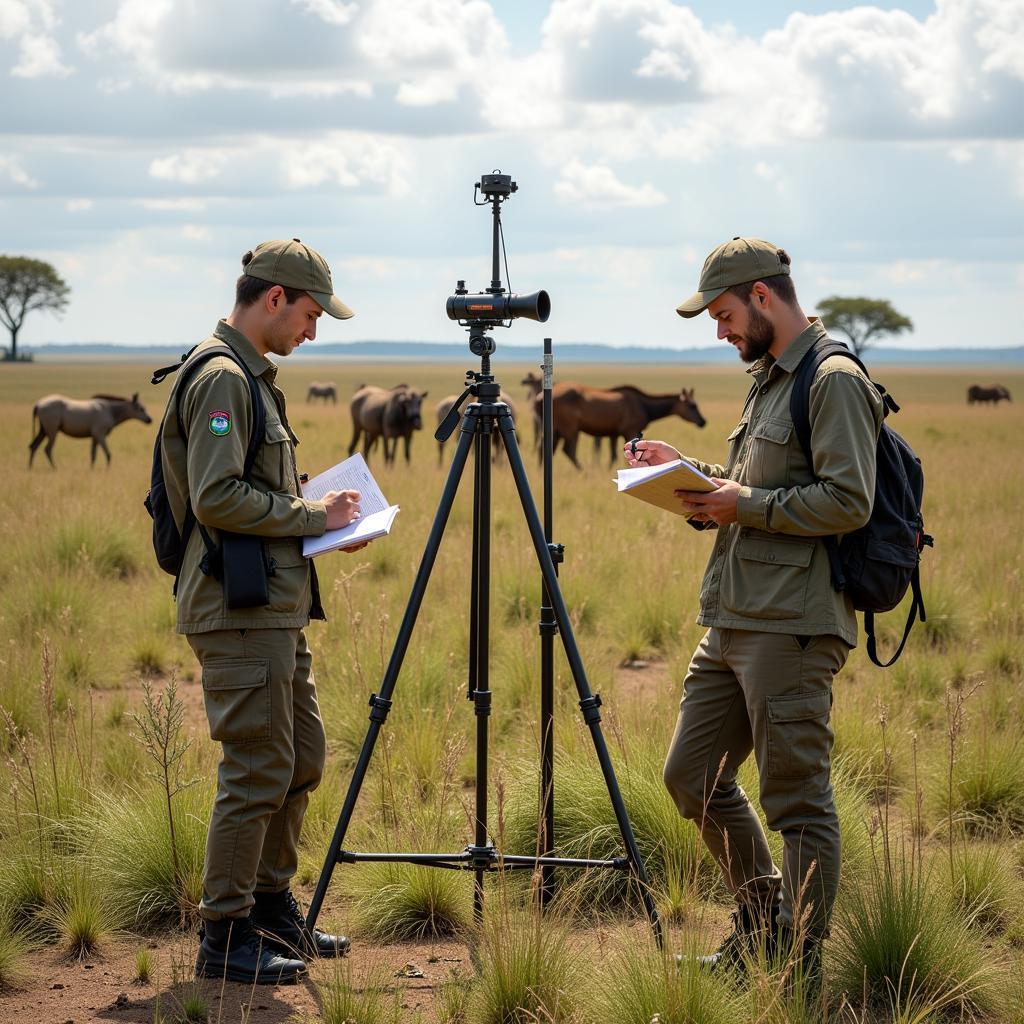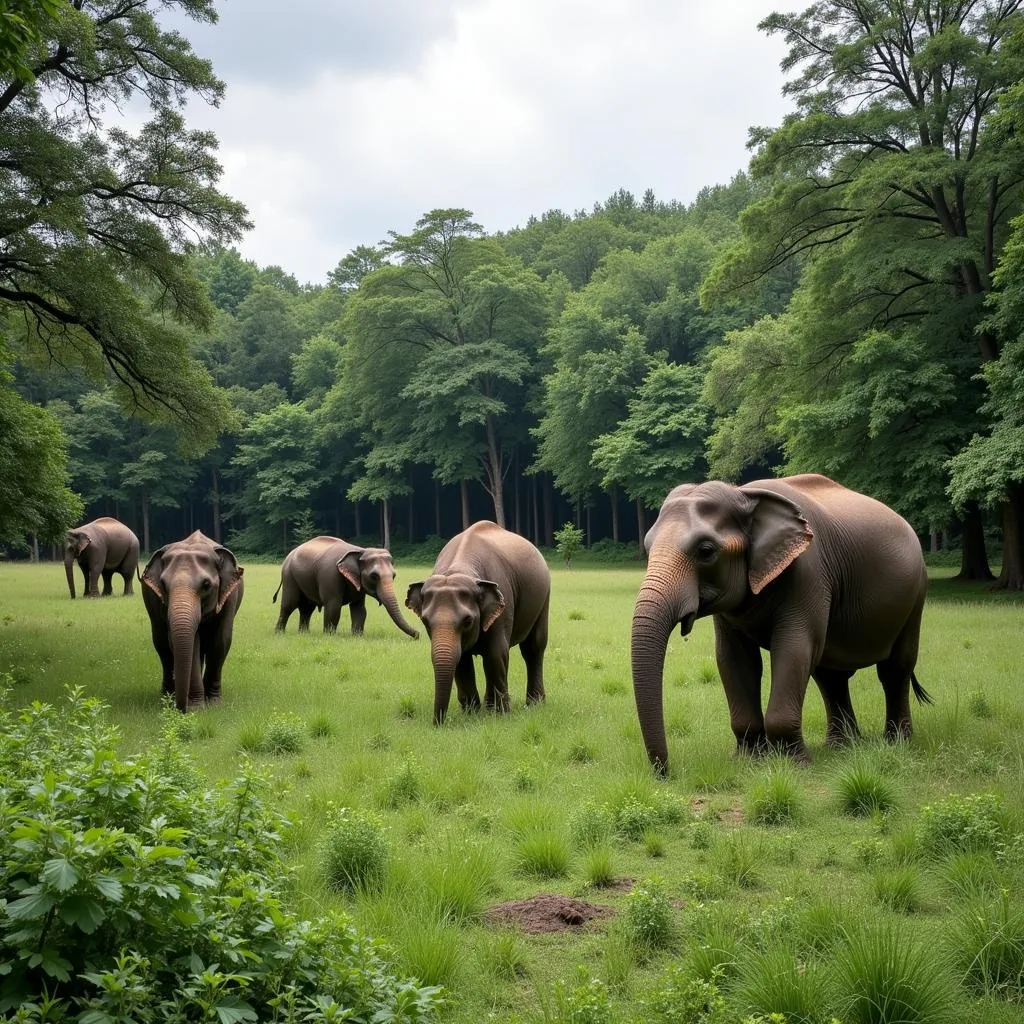The African Continent: A Tapestry of Diverse Nature
The African continent, often hailed as the cradle of humankind, is a land of astonishing natural beauty and diversity. From the snow-capped peaks of Mount Kilimanjaro to the lush rainforests of the Congo Basin, and from the sprawling savannas of the Serengeti to the arid expanse of the Sahara Desert, the African Continent Nature offers a spectacle for every sense. This article delves into the breathtaking landscapes and remarkable ecosystems that make Africa a continent like no other.
A Kaleidoscope of Landscapes: Exploring the Diverse Habitats
The African continent’s diverse geography gives rise to a remarkable variety of habitats. Each region boasts unique flora and fauna, painting a vibrant tapestry of life across the continent.
From Savannas to Deserts: Unveiling the Extremes
The savannas, perhaps the most iconic of African landscapes, stretch across vast swathes of the continent. These grasslands, dotted with acacia trees and teeming with wildlife, are a testament to nature’s delicate balance. Lions, elephants, giraffes, and zebras are just a few of the iconic animals that call the savannas home.
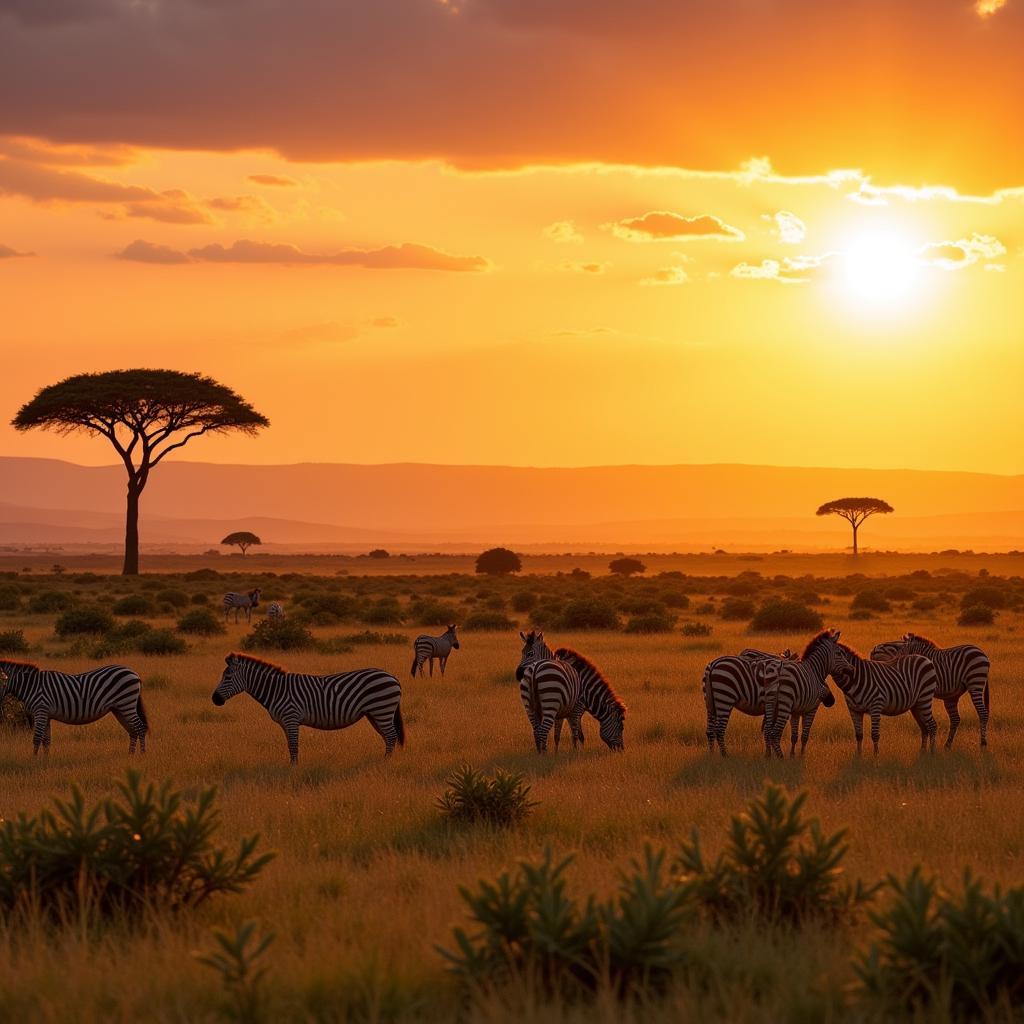 African Savanna Wildlife
African Savanna Wildlife
In stark contrast, the Sahara Desert, the world’s largest hot desert, dominates North Africa. Its towering sand dunes, sculpted by the wind, create an otherworldly landscape. Despite its harsh conditions, the Sahara supports a surprising array of life, showcasing the resilience of nature.
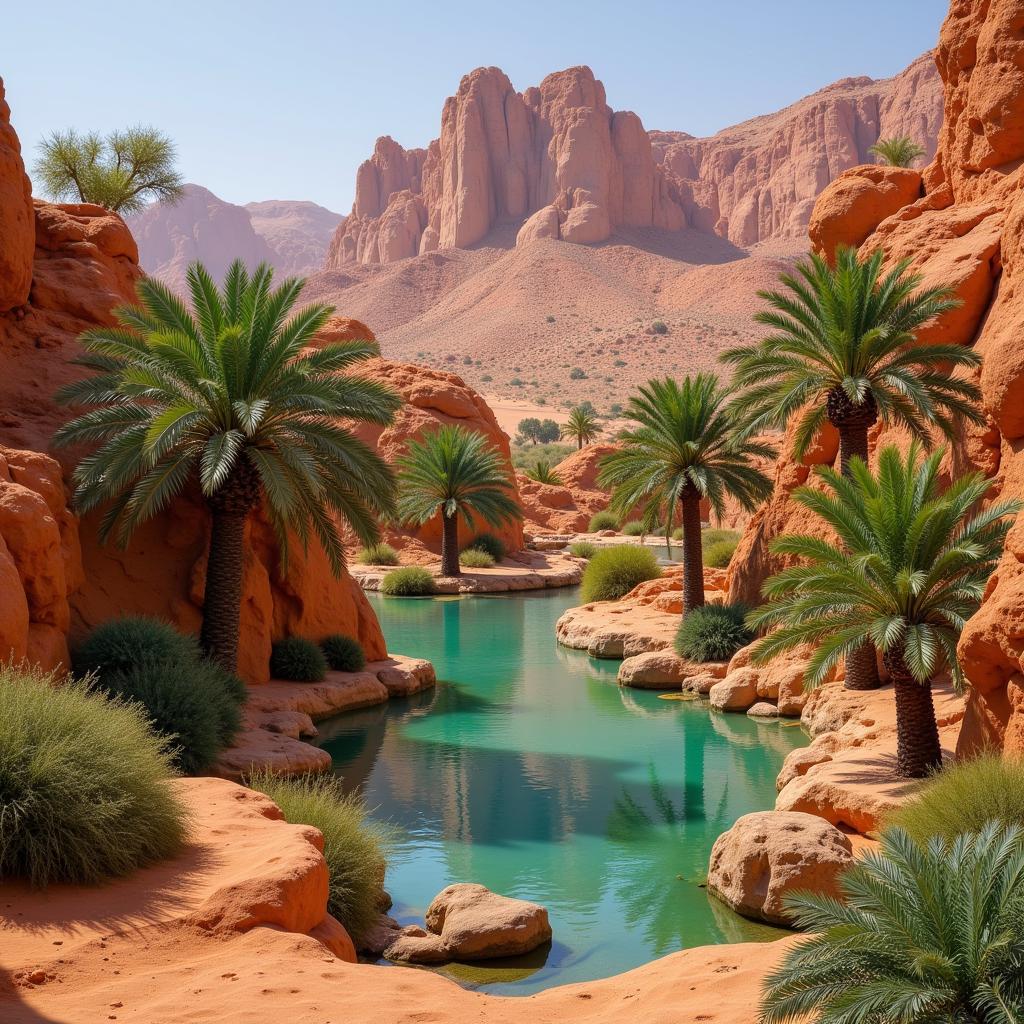 Sahara Desert Oasis
Sahara Desert Oasis
Rainforests and Mountains: Unveiling Hidden Treasures
Central Africa is home to the Congo Basin, the second largest rainforest on Earth. This dense, biodiverse ecosystem teems with life, from gorillas and chimpanzees to a dazzling array of bird species. The rainforest plays a crucial role in regulating the global climate, highlighting the interconnectedness of nature.
Towering above the surrounding landscapes, Mount Kilimanjaro, Africa’s highest peak, stands as a symbol of the continent’s natural grandeur. Its snow-capped summit, a stark contrast to the savannas below, attracts adventurers and nature enthusiasts alike.
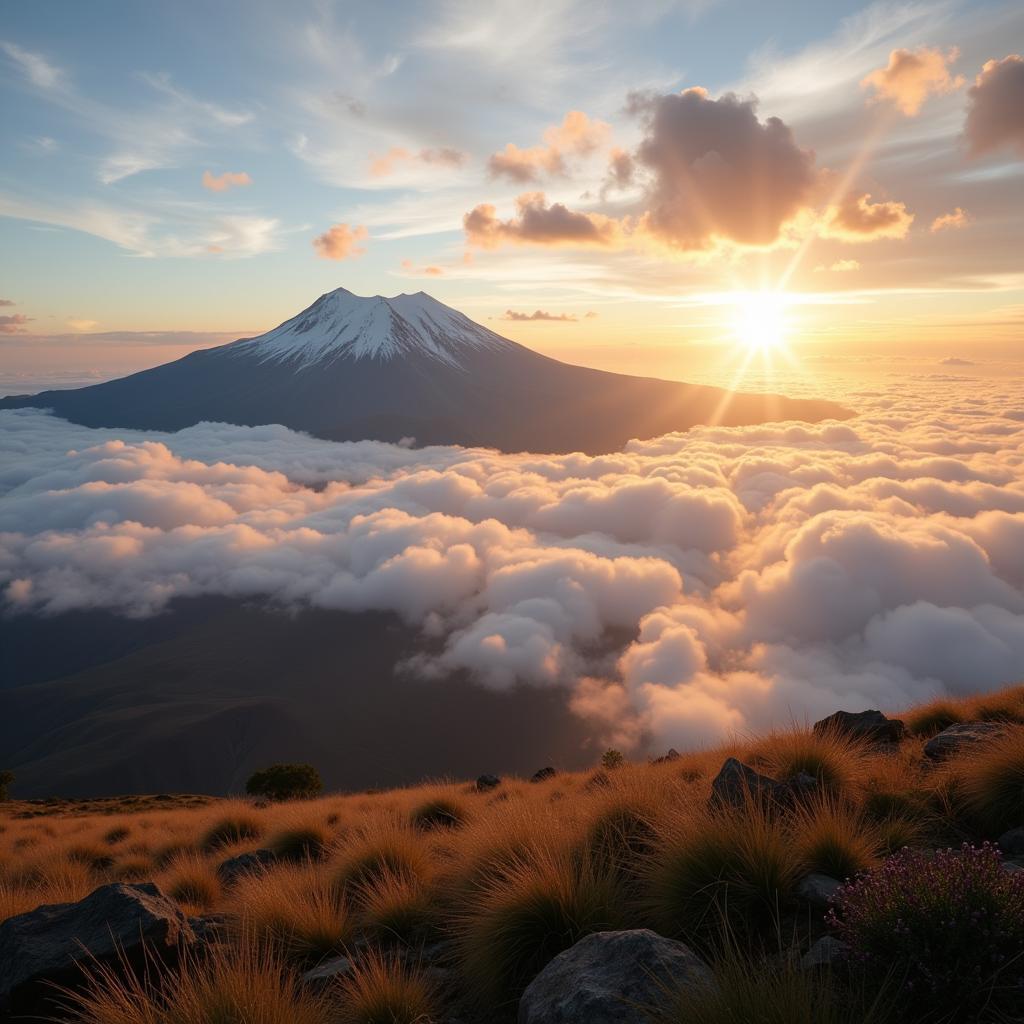 Mount Kilimanjaro Summit
Mount Kilimanjaro Summit
The Importance of Conservation: Protecting Africa’s Natural Heritage
The African continent’s natural wonders face numerous threats, including habitat loss, poaching, and climate change. Conservation efforts are crucial to safeguarding these precious ecosystems for future generations. Many organizations and local communities are working tirelessly to protect wildlife, preserve habitats, and promote sustainable practices.
For instance, initiatives to combat poaching of endangered species like elephants and rhinos are gaining momentum. Community-based conservation programs empower local people to become stewards of their natural heritage.
Experiencing African Nature: A Journey of a Lifetime
The African continent offers unparalleled opportunities to connect with nature. From safari adventures in national parks to trekking through ancient forests, there’s an experience for every traveler seeking to witness the magic of Africa firsthand.
Imagine encountering a family of elephants at a watering hole, their majestic presence leaving you breathless. Or picture yourself watching the sun rise over the savanna, painting the sky in a riot of colors as the sounds of the African wilderness awaken around you.
Conclusion: Appreciating the Legacy of African Nature
The African continent’s natural heritage is a gift to be cherished and protected. Its diverse landscapes, remarkable ecosystems, and incredible wildlife offer a glimpse into the power and beauty of the natural world. By understanding, appreciating, and actively participating in its conservation, we can ensure that future generations have the opportunity to experience the magic of African nature.
Frequently Asked Questions about African Continent Nature
What is the climate like in Africa?
The climate of Africa is as diverse as its landscapes, ranging from equatorial rainforests to arid deserts. While some regions experience year-round warmth and rainfall, others have distinct wet and dry seasons.
What are some of the most iconic animals found in Africa?
Africa is home to some of the world’s most iconic animals, including lions, elephants, giraffes, zebras, rhinoceroses, hippopotamuses, cheetahs, leopards, and gorillas.
What are some of the threats facing African wildlife?
African wildlife faces numerous threats, including habitat loss due to deforestation and human encroachment, poaching for illegal wildlife trade, and climate change.
What are some ways to support conservation efforts in Africa?
You can support conservation efforts in Africa by donating to reputable organizations, choosing sustainable tourism options, spreading awareness, and advocating for policies that protect wildlife and their habitats.
What are some tips for planning a safari trip to Africa?
When planning a safari trip to Africa, research different countries and national parks, choose a reputable tour operator, pack appropriate clothing and gear, and be prepared for early morning game drives.
What are some cultural considerations when visiting Africa?
Africa is a continent with a rich tapestry of cultures and traditions. It’s essential to be respectful of local customs, dress modestly when appropriate, and learn a few basic phrases in the local language.
What are some other natural wonders to explore in Africa besides wildlife?
Africa is home to breathtaking natural wonders beyond its wildlife, including Victoria Falls, Mount Kilimanjaro, the Sahara Desert, the Nile River, and the Okavango Delta.
Need assistance planning your African adventure? Contact us at +255768904061, email [email protected], or visit us in Mbarali DC Mawindi, Kangaga, Tanzania. Our dedicated team is available 24/7 to assist you. Explore more about the captivating world of African batik print fabric and uncover the empowering stories of African equity empowermen initiatives.
